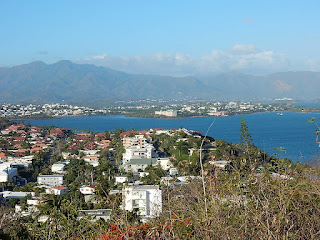I have
written elsewhere on my own approach to photography. I am flattered that
someone has actually been inspired by my photographs and wants to know more
about how I go about creating my images.
One aspect of
photography that I feel confident talking about is composition. I’m told I have a ‘good eye’ for composition
and I think I have developed that aptitude further over time. Composition is
the art of framing your images – what is in the image? is it close range? aligned
with other elements? minimalist? full of
detail? There are many facets to composition and below is a list of the
elements that I am mindful of – in no particular order.
1. Perspective.
Altering perspective can make a fairly mundane image into something much more
interesting. Consider taking the photograph from different angles – up above,
down under, over, beside; think about height and depth
2. Context. Context
in a very real sense is everything. A chair beside a table is not especially
interesting. A fancy office chair beside a path in a public park is a much more
interesting subject – it prompts so many questions. Why? Who? The chair in a
park is in fact out of context – that’s what makes it interesting. A car in a
café likewise - not something you normally see. Be on the look out for normal
things in unusual places!
3. Look everywhere. When you walk let your eyes roam up, down, left to right and back
again. There are possible pictures everywhere. Walk with childlike vision –
linger in places you wouldn’t normally; look at everything more closely. Look
for patterns – on leaves, in the sky, on fences. There is magic in the mundane.
Zero in on the normal.
4. Don’t shy away from eyesores. There is beauty in chaos and mess. Mess is not
always ugly. It can provide stunning unexpected abstract perspectives.
5. Light. Light is always changing – natural sunlight
changes from morning to afternoon to dusk to night. The same scene can look
quite different at different times of the day. Don’t just dismiss something or a
place because “I have photographed that before.” Things look different under
different lighting.
6. Juxtaposition
– look for unlikely companions. The minaret of a mosque looks great in the same
frame as telegraph poles – likewise the telegraph poles! It makes both objects
look more interesting.
7. Boundaries and edges – keep an eye on the edges of things. Boundaries and edges always mean
there’s a change of texture or mood. Eg shore/sand, grass/path, sky/horizon, fences/nature.
8. Light on water. This applies to all bodies of water – ponds, lakes, rivers, the sea.
Light changes the colour of water and often bounces/reflects off it in interesting
ways.
9. Old and new.
Similar to juxtaposition because there is inherent contrast between things that
are old and things that are new. Easy to
spot in the architectural landscape. Similarly people – babies with the elderly
for example.
10 Move your feet. I read once that the best photographers
are those who use their feet! Don’t be afraid to change the angle just a couple
of steps to the left, or a few steps further back. Or move to the side of the
subject and take it in profile. Look for the best or most interesting angle.
11 People: unposed is nearly always better.
12 Architecture/Built Environment Many towns and cities display infinite
variety in their buildings. Old/new; small/large; religious/ secular;
residential/commercial. Isolate the details of what defines a building and take
close-ups – gutters, gables, steps, windows, etc
13 Animals are always a great subject but are often hard to
catch unless they’re asleep. It requires
a lot of patience.
14 Layers. You will be surprised how often the visual
world presents itself in layers. Sand/sea/sky is an obvious one. Footpath/hedge/house
might be another. Ground/trees/sky…..
I hope some
might find this list useful. Please leave a comment or question below if you’d
like me to elaborate more on any of these points.



















